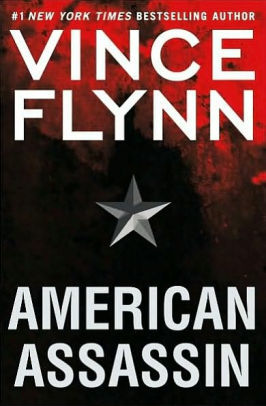
American Assassin
Chapter 1
by Flynn, VinceThe provided excerpt from *American Assassin* by Vince Flynn serves as an introduction to the novel, highlighting its critical acclaim and setting the tone for the high-stakes thriller. The chapter opens with promotional content, emphasizing Flynn’s reputation as a master of postmodern thrillers and the popularity of his protagonist, Mitch Rapp, a CIA operative compared to Jason Bourne. Reviews from notable figures like Glenn Beck and Rush Limbaugh praise the book’s intensity and relevance to contemporary geopolitical tensions, positioning it as a must-read for fans of action-packed espionage stories.
The excerpt also includes a list of Flynn’s previous works, showcasing his prolific career and the consistency of his storytelling. The publisher’s note clarifies the fictional nature of the book while acknowledging its realistic undertones, a hallmark of Flynn’s writing. The dedication to the victims of the Pan Am Lockerbie terrorist attack adds a layer of gravitas, hinting at the novel’s exploration of terrorism and its consequences. This section underscores Flynn’s commitment to weaving real-world issues into his narratives.
Acknowledgments reveal Flynn’s gratitude toward his wife, editors, and industry professionals who supported the book’s creation. He reflects on the solitary nature of writing and the collaborative effort required in publishing. The mention of research and consultations with experts like Rob Richer highlights Flynn’s dedication to authenticity, particularly in depicting locations like Beirut. These details suggest a meticulously crafted story grounded in realism, appealing to readers who value accuracy in thrillers.
The prelude introduces Mitch Rapp in Beirut, Lebanon, immediately immersing readers in a tense, high-risk scenario. Rapp’s internal monologue questioning his sanity sets up his character as a complex, driven individual operating in morally ambiguous territory. This brief glimpse into the narrative promises a fast-paced, psychologically nuanced exploration of espionage, aligning with the book’s reputation for relentless action and depth. The stage is set for Rapp’s transformation into the titular “American Assassin,” a journey that forms the core of the novel.
FAQs
1. What is the central premise of Vince Flynn’s American Assassin based on the provided chapter excerpts?
Answer:
American Assassin follows Mitch Rapp, a CIA operative being groomed as America’s ultimate weapon in the war on terror. The novel explores Rapp’s origins and transformation into a lethal asset, set against the backdrop of post-9⁄11 geopolitical tensions. The chapter emphasizes Rapp’s steely resolve and the book’s high-stakes thrills, with endorsements highlighting its realism and relevance to contemporary security challenges. The Prelude’s Beirut setting hints at Rapp’s early missions in hostile territories.2. How does the chapter frame Mitch Rapp in comparison to other iconic thriller protagonists?
Answer:
The text explicitly compares Rapp to Jason Bourne and Rambo, positioning him as a postmodern action hero tailored for counterterrorism. Reviews praise Rapp’s complexity and fearlessness, distinguishing him through his CIA training and political relevance. Unlike Bourne’s amnesia-driven plots or Rambo’s overt militarism, Rapp’s appeal lies in his calculated precision and alignment with real-world security dilemmas, making him “the voice of today’s postmodern thriller generation” (per The Providence Journal).3. Analyze the significance of the novel’s dedication to Pan Am Lockerbie victims. How might this connect to its themes?
Answer:
The dedication underscores Flynn’s intent to ground the fiction in real-world tragedies, reinforcing themes of justice and retribution. The 1988 Lockerbie bombing—a terrorist act with geopolitical ramifications—mirrors the novel’s exploration of asymmetric threats. This linkage suggests Rapp’s missions will grapple with historical trauma and moral ambiguity, resonating with Flynn’s reputation for “understanding the psyche of the enemy” (Bookreporter.com).4. Based on the publisher’s marketing copy, what audience is American Assassin targeting?
Answer:
The text targets thriller enthusiasts and politically conservative readers, emphasizing “post-9⁄11” urgency and endorsements from figures like Rush Limbaugh and Bill O’Reilly. Phrases like “war on terror” and critiques of “political correctness” appeal to audiences seeking assertive national security narratives. Simultaneously, comparisons to Bourne and nonstop action broaden its reach to mainstream thriller fans.5. How does the chapter’s structure (e.g., prelude, acknowledgments) set expectations for the novel?
Answer:
The Prelude’s focus on Beirut—a hotspot for 1980s terrorism—foreshadows a gritty origin story. Acknowledgments reveal Flynn’s research into military tactics and Middle East dynamics, priming readers for authenticity. The inclusion of real-world figures (e.g., Rob Richer, a former CIA officer) signals a blend of fiction and insider expertise, heightening expectations for procedural detail and geopolitical realism.
Quotes
1. “Behind the steely gaze of the nation’s ultimate hero is a young man primed to become an AMERICAN ASSASSIN”
This powerful statement introduces the core premise of the novel - the origin story of Mitch Rapp’s transformation into America’s deadliest counterterrorism operative. It sets the tone for the character’s development.
2. “Rapp is still the best CIA-trained human weapon this side of Jason Bourne.”
This comparison from the Contra Costa Times highlights Rapp’s elite skillset and establishes him as a premier action hero in the thriller genre, worthy of comparison to Bourne.
3. “A bold and brawny tale that never wavers or lets up… Flynn has never been better.”
The Providence Journal’s endorsement emphasizes the relentless pace and intensity that characterizes Flynn’s writing style and this particular novel’s narrative drive.
4. “Every American should read this book.”
Bill O’Reilly’s strong endorsement suggests the novel contains important insights about national security and counterterrorism that have relevance beyond just entertainment value.
5. “Pure high-powered exhilaration.”
This succinct praise from the Lansing State Journal captures the visceral, adrenaline-fueled reading experience that Flynn’s thrillers consistently deliver.
